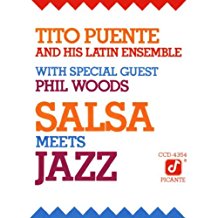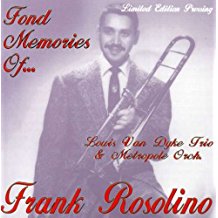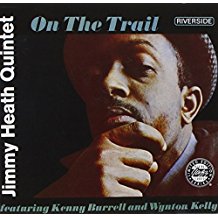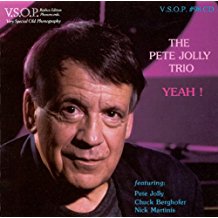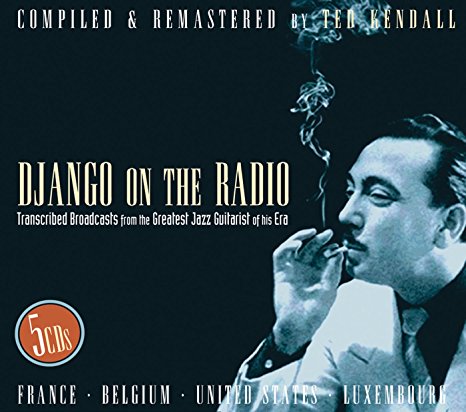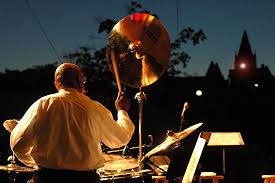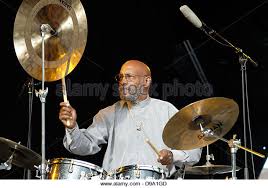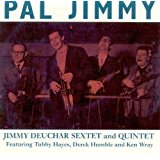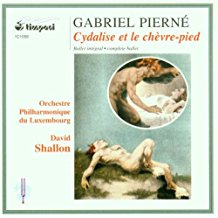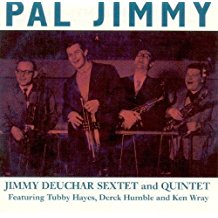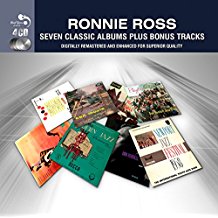-
Posts
13,205 -
Joined
-
Last visited
-
Donations
0.00 USD
Content Type
Profiles
Forums
Events
Blogs
Everything posted by Larry Kart
-
Several times, several different line-ups. Working backwards: Wynton-Branford, Blanchard-Harrison, and before then it all begins to blend together. For some reason, I remember one with Charles Fambrough on bass but don't recall the front line -- it might have been Blanchard-Harrison? Think I caught the lineup with Dave Schnitter in it, don't recall the trumpeter -- Valery Pomonorev? Don't recall catching the classic lineups -- Morgan-Golson, Morgan-Shorter, Hubbard-Fuller-Shorter, Morgan-Fuller-Shorter. Looking at a JM chronology, I see lots of Chicago gigs that I could have gone to in the '60s. Can't believe that I missed all of them -- maybe I didn't, but I don't remember.
-
Also, the lyric of "Moonlight in Vermont" is devoid of rhymes.
-

Harvey Weinstein story in New Yorker...truly shocking
Larry Kart replied to BERIGAN's topic in Miscellaneous - Non-Political
OK everyone -- I'm going back and deleting every post (or parts of posts) on this thread that seem/seems to me to be political -- "political" in the specific sense that it targets a present or former or would-be office holder or says that adherents or backers of one political party are more complicit here. The rest of the thread, so it seems to me, should stand. (If I missed something, let me know.) And let that be the END of trying to do this stuff here. I've got better ways to spend my time than cleaning up after the circus parade. -
Because the word is spelled "loath" -- meaning "reluctant to," "disinclined to." Or were you making a joke I didn't get?
-
I love Sonny's version of "What's My Name?" Great tune, somewhat akin to "Old Devil Moon." As was often the case for him at this time, the way he resolves things has a Beethoven-ian sense of release and finality. "What's My Name?" was co-written, with Robert Saxton, by Robert Wells, who also co-wrote (with Mel Torme) "The Christmas Song" and "Born To Be Blue," and "When Joanna Loved Me," with Jack Segal. I wonder, what, if anything, "What's My Name?" was written for. It doesn't sound like a stand-alone pop song.
-

What Classical Music Are You Listening To?
Larry Kart replied to StarThrower's topic in Classical Discussion
Lee Hyla obit: https://www.bostonglobe.com/metro/obituaries/2014/06/10/lee-hyla-former-new-england-conservatory-professor-composed-scores-that-melded-energy-and-complexity-rock-and-classical-music/KlkfuYyA4hDqOMi6ayBvFJ/story.html -

What Classical Music Are You Listening To?
Larry Kart replied to StarThrower's topic in Classical Discussion
My first Tubin symphony. Impressed, I ordered most of the rest. Sadly deceased at a fairly young age, Lee Hyla, on the basis of these three works, was one heck of a modern composer, with a terrific and to my mind unique sense of timbre and rhythm. One of these works discretely incorporates the bass line of a piece from the AEC's "Le Stances de Sophie." Hyla had a background in that music in his early days in the Boston area. -
https://www.nytimes.com/2017/11/22/obituaries/george-avakian-dead-record-producer-and-talent-scout.html?_r=0
-

What Classical Music Are You Listening To?
Larry Kart replied to StarThrower's topic in Classical Discussion
In the prelude to Suite 4, I compared the later Gaillard, Queyras, Wispelwey (Channel Classics), and an old favorite, Lillian Fuchs on viola (Doremi). Gaillard in the booklet to her discs is asked by an interviewer, "What do you mean when you speak about a sense of rhetoric, when there is no text and the music is secular?" She answers: "Indeed, there is no text in these dance suites. Yet we cannot help being touched by their eloquence, as if the cello were speaking." That's it exactly, or that's it in her recording. In the prelude to Suite 4, each five-note melodic phrase begins/jumps down into and then off from a lower-register chord, as though from a trampoline: jump ... chord ... bounce ... melody... jump ... chord ... bounce ... melody... etc. for roughly 4:30, with shadings/variations in emphasis. In Gaillard's performance the lower-register chords tend to be gruff and are fairly clearly differentiated in timbre and by timing and volume from the notes that follow before the next launching lower-register chord arrives. The sense of speech, even of dialogue, that results is quite clear and to me feels just right. Further, listening to Wispelway, who also takes good account of the initial chord-versus-following melodic arc rhetorical structure and even nicely goes on to timbrally differentiate and shade in volume those chords from each other as the movement goes on, one gets the feeling (at least I do) of an interpretation, of a player making the instrument speak in a particular way, while with Gailard it's the instrument itself that seems to be speaking. I know -- booga-booga stuff, but that's the feeling I get. With Queyras, the lower-register chords in each phrase are almost scamped/nearly inaudible, as though he doesn't quite want us to hear them; thus the movement's rhetorical structure is more or less missing. He does it this way, I would guess, because he wants to play those repeating wave-like melodies in as unbroken a fashion as possible, as a lyrical line, that is -- it's like 4 minutes of melted dark chocolate. But the prelude isn't lyrical per se or lyrical that way; it's about a chord (and an act of rhythm, i.e. the "jump") repeatedly generating (in dlalogue, dancing like a partner with) a melody. Fuchs gets this too, but her recording, from the early 1950s, is rather close up; thus the initial chord of each phrase isn't as clearly differentiated in timbre and volume from the notes that follow as with Gaillard and Wispelway. But her performance sure is worth a listen. -

What Classical Music Are You Listening To?
Larry Kart replied to StarThrower's topic in Classical Discussion
I was the one who praised her later recording but haven't heard the earlier one. A commentator on Amazon whose opinion I usually respect said that her earlier version was rougher but agreeably so, though he couldn't chose between them. Recently I heard the much touted recording of the suites by Jean-Guihen Queyras. Technically, he's remarkable; musically IMO -- blah. BTW, that same Amazon commentator was delighted by the Queyras recording. -
Fine charts, mostly from Puente (his "Con Alma" is especially nice, perfect tempo), vivid sound, and even someone who's normally less than enthusiastic about Phil Woods (that would be me) would have to admit that he's in very good form on his three tracks here.
-
-
Heath in fine form with Wynton Kelly, Kenny Burrell, Paul Chambers, and Tootie Heath. What's not to like? First recording of "Gingerbread Boy" and of Jimmy making "On the Trail" a jazz standard for a while.
-

What Are Your Favorite Baseball Books?
Larry Kart replied to paul secor's topic in Miscellaneous - Non-Political
-
Jolly's time really "popped."
-
-
-
I like that period too, but IIRC I liked hearing McCoy's working bands of that period even more than I liked the recordings. I'll never forgot the bizarre ride cymbal setup of Eric Gravatt, the cymbal almost vertical and so high that it looked like he might have trouble reaching it. Never fear; he bashed the holy hell out of that thing.
-
Nice to hear Tubby Hayes on baritone. As might be expected, he was all over the horn. Harry South was an interesting pianist, with some Monkish touches at times, though I suspect that this was just who South was.
-
Not so good? I disagree. For one thing, it has some of the finest Don Joseph on record.
-
So far, right up there with "Daphnis and Chloe." Superb performance, too. Sadly, the talented conductor David Shallon died quite young (1950-2000).
-
-
Agreed. But Ken Moule's "Jazz from Toad Hall"!
-
_forumlogo.png.a607ef20a6e0c299ab2aa6443aa1f32e.png)



